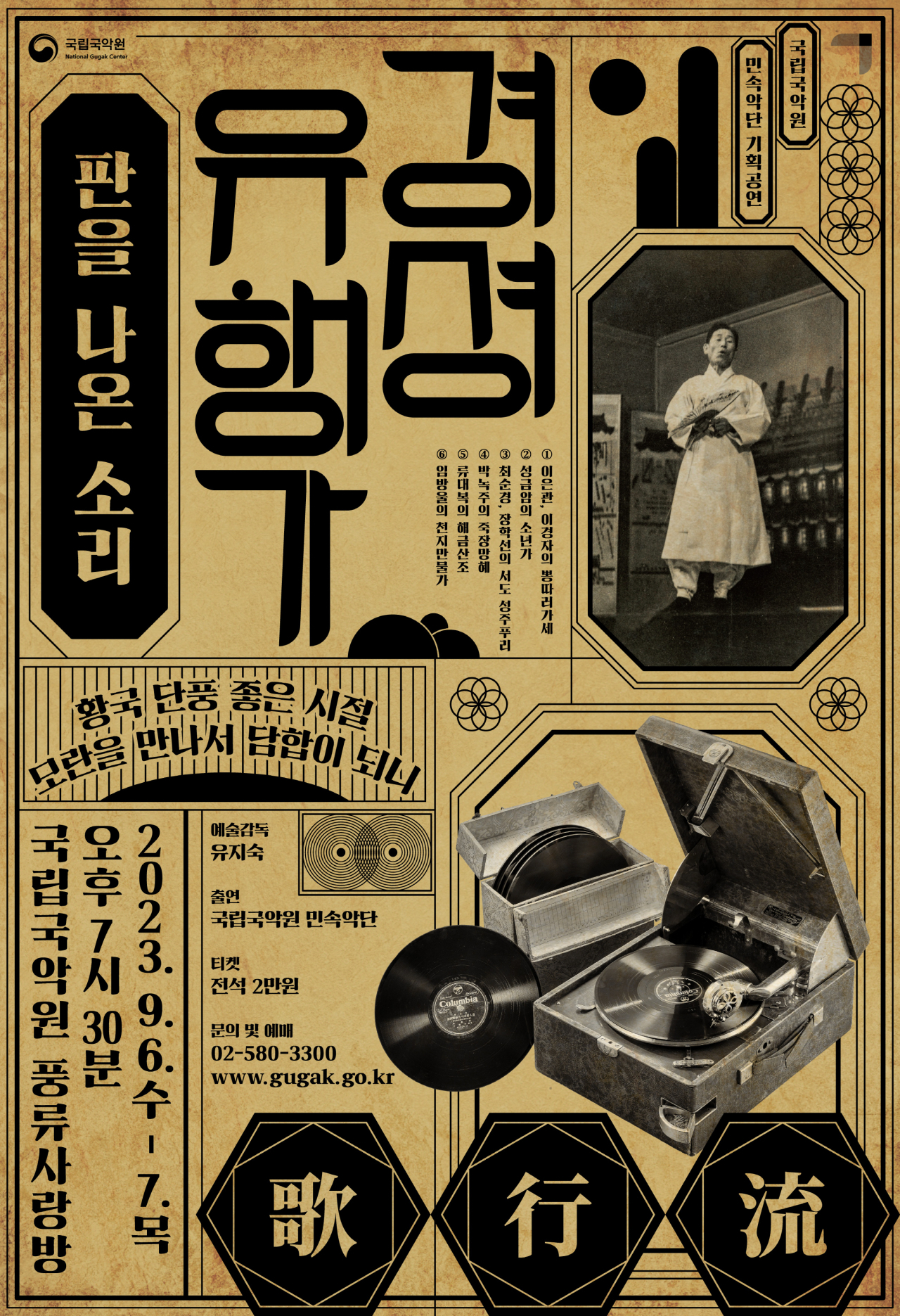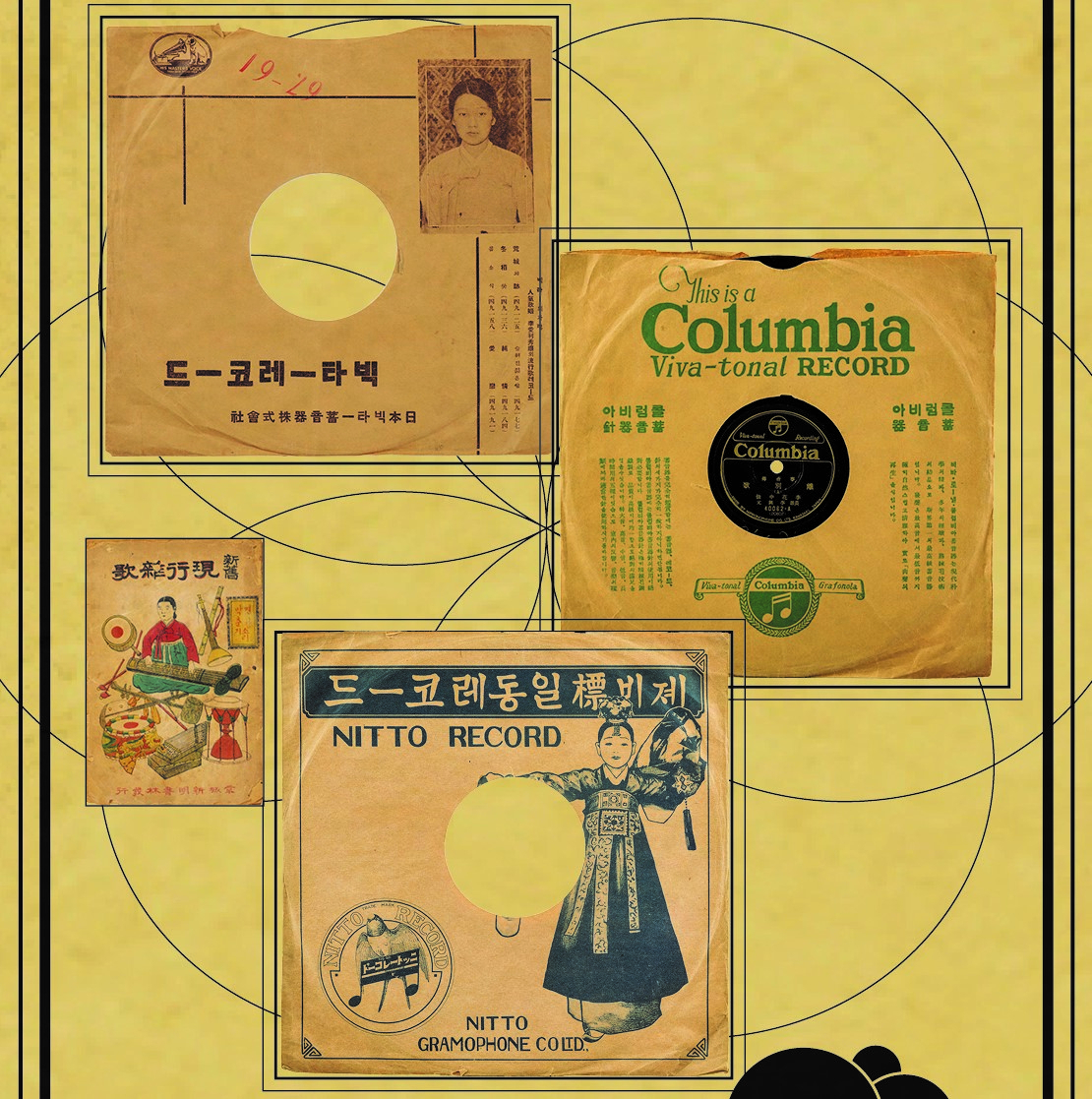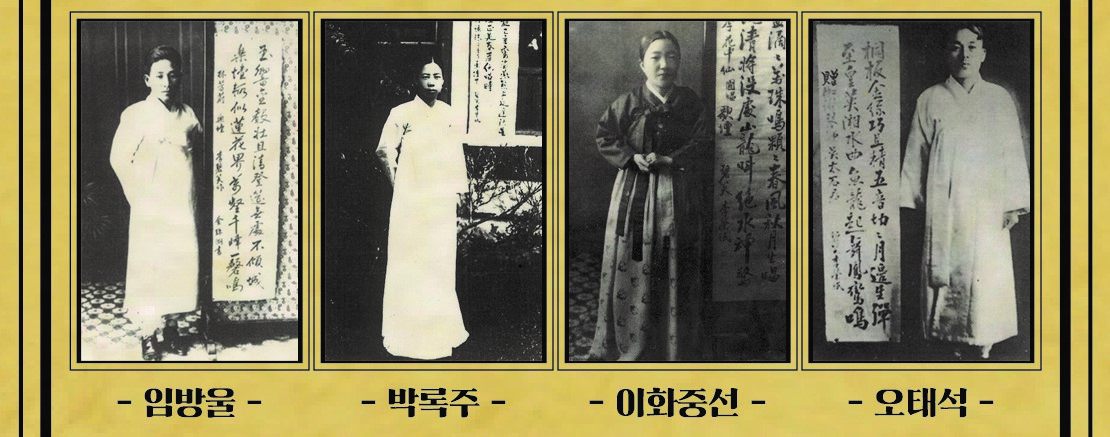 |
Poster for “Gyeongseong Hit Songs” (National Gugak Center) |
Popular hit songs of the 1920s and 1930s will be revisited for two days this week.
The National Gugak Center is set to perform “Gyeongseong Hit Songs,” a collection of century-old tunes originally recorded on gramophone records, on Wednesday and Thursday at the center's Pungnyu Sarangbang. Gyeongseong is an old name for Seoul.
The introduction of phonograph records the 1920s transformed how music could be experienced. Music, previously only heard on live stage performances, was now accessible off the stage.
The innovation allowed people to enjoy music at their convenience, which shot pansori singers of the era to stardom.
Phonographs had limited recording time, approximately 3 minutes and 30 seconds per side, and this technological limitation led to the development of fast-paced music, a departure from the typically slow Korean music.
 |
Collages of gramophone covers (National Gugak Center) |
 |
From left, pansori singers Lim Bangul, Park Nuk-ju, Lee Hwajungseon and O Tae-seok (National Gugak Center) |
The upcoming performance, presented by the Folk Music Group at the National Gugak Center, will breathe new life into iconic tunes from this era, featuring 15 folk songs, pansori, and “sinminyo,” or new folk songs, recorded by celebrated vocalists of the time who embraced the new medium of phonographic records.
The stage will open with Seodo sori, referring to folk songs passed down in Seodo regions -- Hwanghae Province and Pyongan Province. Compared to today’s Seodo sori, the early editions have a comparatively lighter emotional tone.
Some gayageum byeongchang, which involves singing and playing the gayageum simultaneously, will also be performed.
Singers of the Folk Music Group will perform pieces that were recorded by the legendary pansori singers of the time, such as Lee Hwajungseon, Lim Bangul, Park Nuk-ju and Kim Cho-hyang.
The “sinminyo” genre, a blend of popular folk tunes and Western music, will be also featured, their fusion of traditional and Western instruments capturing the spirit of the era. To recreate the ambiance of the era, a hand organ will be incorporated into the performance.







![[Today’s K-pop] Blackpink’s Jennie, Lisa invited to Coachella as solo acts](http://res.heraldm.com/phpwas/restmb_idxmake.php?idx=644&simg=/content/image/2024/11/21/20241121050099_0.jpg)